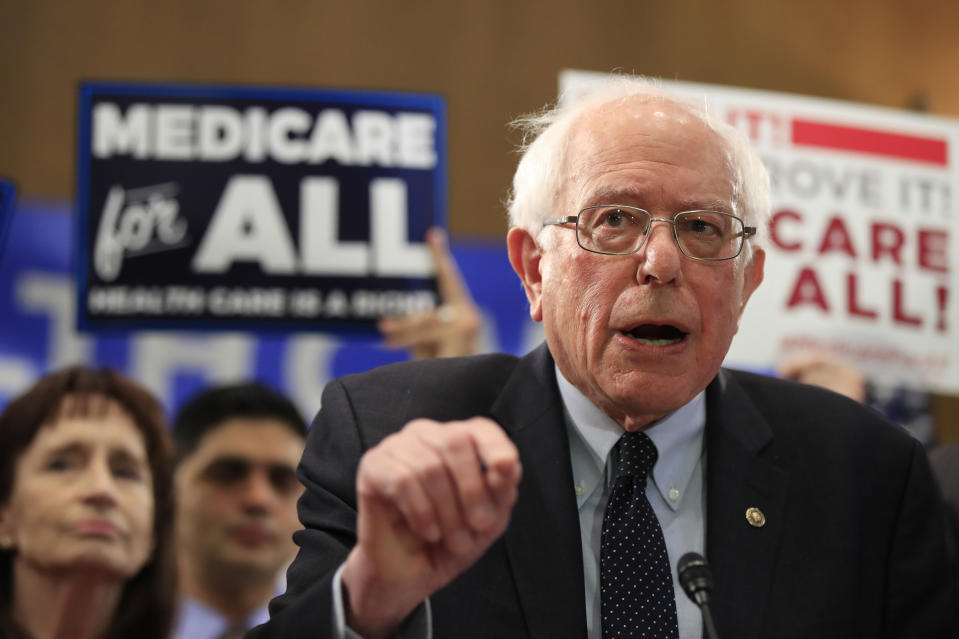'Medicare for All' would not work in the US: top health care CEO
The “Medicare for All” debate is only heating up as Democrats take aim at President Donald Trump and the issue in the 2020 presidential race.
And now one powerful name in the health services industry is weighing in with on the matter.
“In short, we believe everyone has the right and responsibility to have coordinated high quality health care services,” Cigna CEO David Cordani told Yahoo Finance fresh off a big second quarter earnings report. “We believe we need to build on the effective public private partnerships that exist like the success of Medicare Advantage and we believe there is an opportunity to preserve choice, expand innovation and improve affordability by driving it that way. We do not believe a one-size fits all offering works for the United States in any way, shape or form.”
Suffice it to say, many of the leading Democratic presidential candidates grabbing headlines have opposing views on the health care topic — all of which continue to play out on the TV debate stage.
Where the Democrats stand
Senator Kamala Harris released her plan for a “Medicare for All” system this week. Harris’ version would shift all Americans into a single-payer plan over the course of 10 years. That’s a key differentiation relative to Senator Bernie Sanders’ proposal to do so over four years.
Meanwhile, Harris’ proposal would let a more regulated private health insurance market — one in which the likes of Cigna (CI) and rival UnitedHealth (UNH) play in — go head-to-head with a revised government option. Sanders would effectively end the private insurance market, which obviously wouldn’t be good news for publicly traded health insurers.
To pay for their somewhat wild plans, Sanders proposes a 4% tax on household income above $29,000. Harris foresees a 4% tax on those making over $100,000.

All in, Sanders has one of the most aggressive health care reform plans on the planet. Harris’ is more of a middle ground between Sanders’ and the existing marketplace.
Both would unlikely be welcome news to health insurers.
As for former U.S. Vice President Joe Biden, who helped architect Obamacare? He has staked out a health care stance this debate season far off from the more progressive voices in the Democratic party. Biden’s proposal calls for a public option and a boost to subsidies so people can more easily buy insurance.
Biden has stressed on the campaign trail that folks would be able to keep their current insurance if they so wanted.
Brian Sozzi is an editor-at-large and co-host of The First Trade at Yahoo Finance. Follow him on Twitter @BrianSozzi
Read the latest financial and business news from Yahoo Finance
Dunkin' is launching plant-based ice cream in a bid to 'democratize' major food trend
Dunkin' enters the plant-based meat craze by joining forces with Beyond Meat
Beyond Meat founder: We are working on meatless bacon and steak
Why Chipotle hasn't joined forces with plant-based meat kings Impossible Foods and Beyond Meat
Follow Yahoo Finance on Twitter, Facebook, Instagram, Flipboard, SmartNews, LinkedIn, YouTube, and reddit.

 Yahoo Finance
Yahoo Finance 